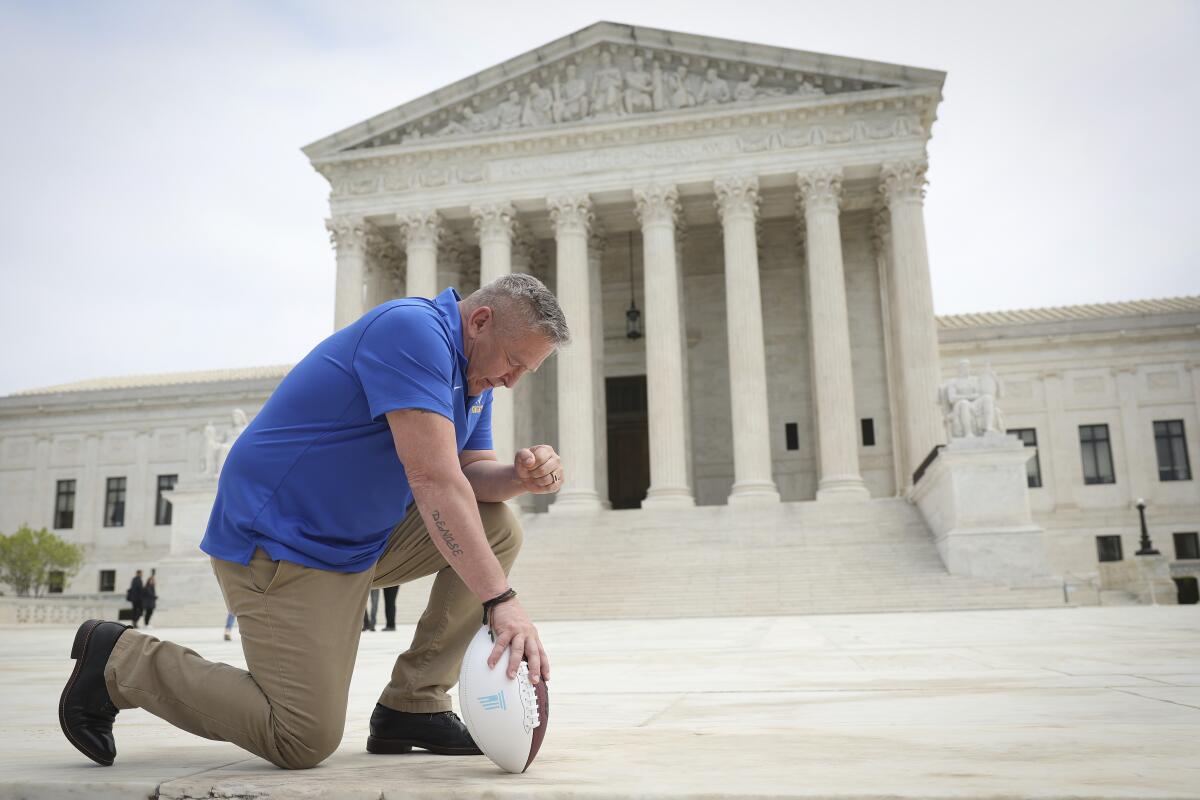Letters to the Editor: Why holding ‘optional’ football team prayers is just bad coaching

- Share via
To the editor: As a high school and college football player, I hated team prayers. But my fellow atheist and non-Christian teammates and I mostly just dealt with being herded under someone else’s religion by staying quiet. Football is a rough sport, and religious schisms don’t encourage comradery. (“Supreme Court rules for coach whose prayers on field raised church-state questions,” June 27)
As a public high school football coach, I noticed what student athletes did on and off the field. When two similarly talented athletes were vying for playing time, factors like work ethic or character were considered when deciding who plays.
So don’t tell me that a coach isn’t paying attention to who attends the “non-compulsory” prayer circle after the game. Any player on the bubble would feel pressure to increase his chances to play by taking a post-game knee for someone else’s god.
Here’s some advice for any coach who values team unity over proselytizing: Skip the prayer and opt for a moment of silence. This way, players can focus on the game instead of their religious differences and remain a team.
James Underdown, Los Angeles
The writer is executive director of the Center for Inquiry West.
..
To the editor: Would the U.S. Supreme Court’s conservative majority in Kennedy vs. Bremerton School District have been as sympathetic to this coach’s free exercise of his religious beliefs if, instead of being a self-described devout Christian, his name was Mohammed and he unrolled a prayer mat on the 50-yard line and knelt down facing Mecca?
Sue Derian, Manhattan Beach
..
To the editor: Your article says, “Civil libertarians and many educators said allowing a coach or any other school authority figure to lead a prayer amounted to the kind of establishment of religion that the Constitution forbids.”
First of all, if Coach Joe Kennedy prayed by himself at midfield after each game, how does that violate the 1st Amendment or offend anyone?
Second, even though many ended up joining him, no one was forced into doing so.
Third, if people are intimated by that, they can always peacefully protest.
Fourth, prayer is not an establishment of religion. Religion in America has already been established in the form of many denominations.
Fifth, the 1st Amendment was designed to prevent the establishment of a federally or officially sanctioned denomination, not prohibit free speech.
What is there about people praying in public that civil libertarians find so offensive or threatening?
Jim Black, Ft. Lauderdale, Fla.
..
To the editor: My father grew up in Poland before World War II. He never forgot how during prayer in the classroom, hate toward the Jewish kids rose up and reared its ugly head.
America should be better than this. We are sadly moving back in time.
Esther Friedberg, Studio City



